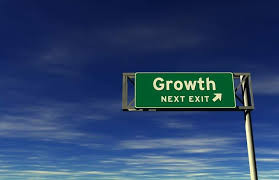The Personal Growth Hack Nobody's Talking About

Have you ever felt like you were spinning your wheels in personal growth, trying every method out there, but something just doesn’t click? You’re not alone. With so many self-help tools available, it’s easy to overlook one of the simplest, yet most effective, strategies for personal growth: self-reflection. Often, people think of progress as something external—what you can achieve, how much you can do, and how fast you can get there. But what if the secret to real growth lies within?
Self-reflection may not seem like a grand gesture of change, but it has the potential to transform how you think, feel, and act. It’s not about doing more but understanding more—about yourself. Once you start looking inward, you’ll find that this quiet, introspective practice is the missing link in many personal development journeys. Let's see how self-reflection can be your ultimate growth hack.
What Is Self-Reflection?
Self-reflection involves taking time to think about your thoughts, behaviors, and experiences. It’s the conscious effort to evaluate your day-to-day actions, emotions, and decisions. When you reflect, you’re not just dwelling on what happened but actively learning from it. For example, imagine you faced a stressful situation at work today. Reflecting on how you handled it can provide insight into your reactions, emotions, and the effectiveness of your response.
Unlike goal-setting or taking courses, which are outward-focused, self-reflection is inward. It's about peeling back layers and asking questions that lead to a better understanding of yourself. Once you understand yourself better, you can adapt, grow, and improve in ways you didn’t realize were possible.
How Self-Reflection Helps Personal Growth
When you consistently reflect on your thoughts and actions, your self-awareness improves. This higher level of awareness gives you a clearer picture of your strengths, weaknesses, and areas needing improvement. It’s like getting feedback from yourself, which is often more honest than external feedback. Here are some of the ways self-reflection fuels personal growth:
- Emotional Intelligence: Reflection helps you understand your emotions better. By recognizing your emotional triggers, you can manage them more effectively and develop emotional resilience.
- Improved Decision-Making: Taking time to reflect on past decisions allows you to learn from mistakes and replicate successes. You become more thoughtful and deliberate in your future choices.
- Developing a Growth Mindset: Reflecting on your experiences—both good and bad—helps you embrace challenges as learning opportunities. This leads to continuous improvement instead of being stuck in the same patterns.
How To Start Self-Reflecting
While the idea of self-reflection sounds simple, starting the habit can feel overwhelming. You might wonder where to begin or worry that it will take too much time. Fortunately, it doesn’t need to be complicated or time-consuming. Here are some practical ways to make self-reflection a natural part of your routine:
- Journaling: This is one of the most effective ways to reflect. Writing down your thoughts at the end of the day can help you clarify your feelings and track patterns in your behavior over time. Even just five minutes of journaling can make a big difference.
- Meditation: If writing isn’t your style, try meditation. It gives you space to clear your mind and reflect on the day’s events without judgment. Mindfulness meditation, in particular, allows you to observe your thoughts and emotions, which is essential for personal insight.
- Asking Reflective Questions: Another way to reflect is by simply asking yourself some key questions. For example:
- What did I learn today?
- What could I have done better?
- How did my actions align with my goals?
By asking these types of questions regularly, you’ll build the habit of self-reflection and find new insights into your behavior and decisions.
The Misconceptions Around Self-Reflection
One reason people may avoid self-reflection is the misconception that it’s too passive or introspective to lead to real change. There’s a belief that to grow, you need to focus on action—whether that’s setting goals, doing more, or achieving something tangible. However, the truth is that action without reflection can lead to burnout, repeated mistakes, and unfulfilled goals.
Another common misunderstanding is that self-reflection takes too much time. But even just a few minutes of reflection each day can provide significant insights. It’s not about carving out hours; it’s about building a small habit that fits into your routine.
The Long-Term Impact of Self-Reflection
The beauty of self-reflection is that its benefits compound over time. The more you practice it, the deeper your insights will be. Here’s what you can expect with consistent self-reflection:
- Enhanced Self-Awareness: Over time, you’ll develop a clearer understanding of your behaviors, motivations, and emotions. This will lead to better relationships with others and more self-compassion.
- Stronger Relationships: As you understand yourself better, you also become more attuned to others. Self-reflection can improve your empathy, making you more supportive and understanding in your interactions.
- Career Advancement: Reflecting on your work habits and performance can help you identify areas for professional growth. Whether it’s improving time management, learning new skills, or refining your communication style, self-reflection helps you stay on top of your development.
A Balanced View: The Potential Drawbacks
While self-reflection is powerful, it’s important to balance it with action. Too much reflection can lead to overthinking or getting stuck in analysis. This is where setting boundaries helps. For instance, limit your reflective time to 10–15 minutes daily, then move on to action steps based on your insights. Reflection is meant to inform your actions, not replace them.
Conclusion
Personal growth isn’t just about achieving more—it’s about understanding yourself more deeply. Self-reflection offers a quiet but powerful tool for gaining insight into your behaviors, emotions, and decisions. By making self-reflection a regular habit, you’ll unlock new levels of personal and professional growth that no amount of external achievements can bring. Start small, stay consistent, and watch your growth journey take off in ways you hadn’t imagined.





